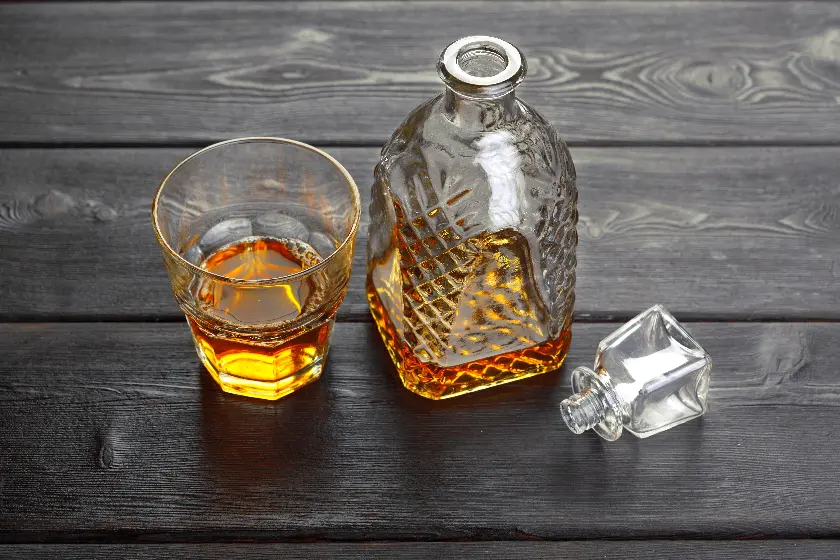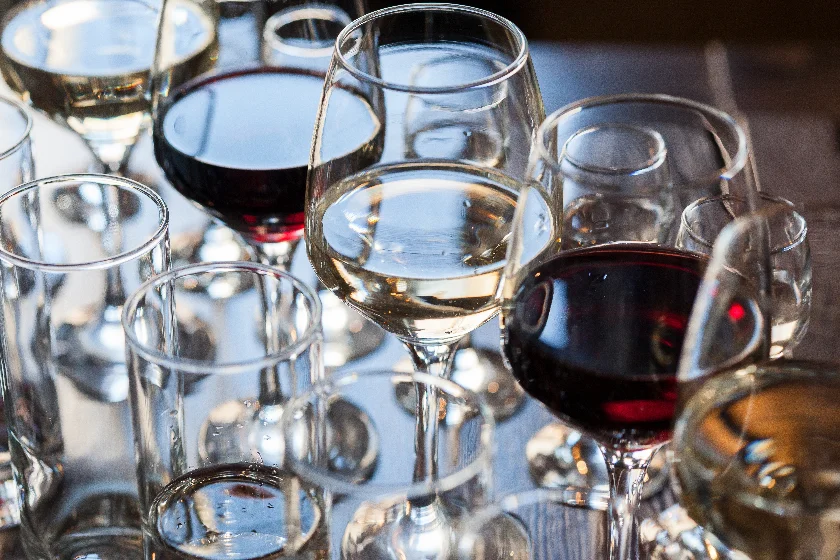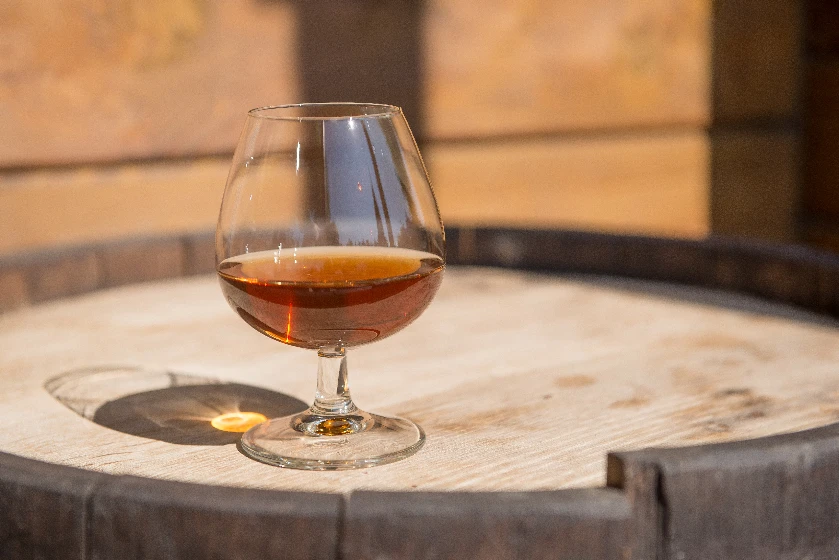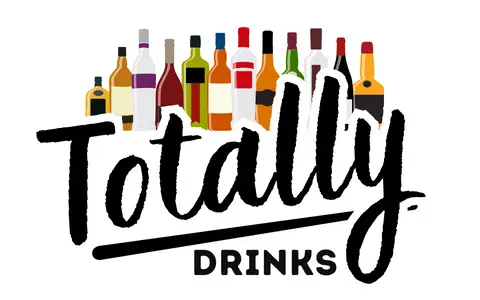
Have you ever wondered what happens to alcohol when it’s left open? Does it lose its potency or retain its original strength and flavor? To answer these questions and more, let’s dig a little deeper into the science behind how alcohol is affected when it comes into contact with light and air.
When alcoholic drinks are left open, alcohol and water will evaporate into the air to cause the volume, flavor, and strength of the drink to change. Factors such as temperature, humidity, and surface area exposed to the air will affect the evaporation rate. Some types of alcohol, such as wine, will oxidize and turn sour when exposed to air.
Spirits are more resilient from their strong alcohol content and can last years after opening if kept sealed.
From how oxidation affects the taste of wine to why spirits should not be left open too long, this article explores the effects that leaving alcohol open can have on its quality. Read on as we uncover how your favorite drink is affected after being sat out in the open.
The Effect On Alcoholic Drinks When Left Open
Leaving alcohol open can have a significant effect on its quality over time. Since alcohol is highly volatile, leaving it exposed to air and light can lead to oxidation, flavor evaporation, and chemical changes that affect its taste, smell, and potency.
Some drinks like wine or beer need to be consumed quickly once opened. Not only will they go flat quite quickly if carbonated, but they will also lose their taste. For better longevity, check out this guide on how to store opened beer for longer.
Spirits such as whiskey or vodka may be a little more forgiving, but should not be left open for too long as they will lose their strength and flavor.
This is because many of the compounds that give alcohol its distinct taste and smell are more volatile than water. So, as the alcohol evaporates, some of these compounds are lost, which can alter the flavor profile of the drink.
In addition to changes in flavor, leaving alcoholic drinks open can also lead to changes in color and texture. For example, a white wine that’s left open for too long can turn brown or yellow and may become cloudy. This is because exposure to air can cause the wine to oxidize, a chemical reaction that changes the color and texture of the liquid.
To maximize the lifespan of your favorite beverage, make sure to close the bottles tightly after each use and store them in a cool, dark place.

How Quickly Does It Evaporate Or Lose Potency?
The rate of evaporation depends on a few factors, such as the type of alcohol and the amount of exposure to air, light, and heat. For instance, the higher the temperature and the lower the humidity, the faster the alcohol will evaporate.
In general, hard liquors like vodka or whiskey can last longer than wine or beer once opened. This is because spirits have higher alcohol content (typically around 40%), making them less prone to evaporation and oxidation.
Spirits can last several years after you’ve started the bottle, although most experts recommend not keeping them for longer than 24 months or so.
The amount of surface area exposed to air also affects how quickly it deteriorates. For example, a bottle that’s filled almost to the top is more likely to retain its quality for longer than a bottle with just an inch or two left in it – more air means more oxidization.
That means it’s always a good idea to finish the bottle with the least amount of drink left in it first if you have the choice.
Can You Drink Alcohol That Has Been Sitting Out?
If you’ve ever left a glass of wine or a bottle of beer out on the counter overnight, you might be wondering whether it’s still safe to drink. While it’s not recommended to consume alcohol that has been sitting out for an extended period, it’s not necessarily harmful in all cases.
Of course, it’s probably not going to taste that great though as the flavor and potency of the beverage can be drastically altered when left exposed to light and air.
If the alcohol has been left out for a short time, such as an hour or so, it’s unlikely to have spoiled. Some types of beer and wine are designed to be consumed after letting them “breathe”. The fresh air can awaken aromatics in the wine, especially if it’s been bottled for a long time.
However, in general, the longer the alcohol has been sitting out, the greater the risk that it has gone bad. If in doubt from the appearance or smell, it’s best to discard it and open a new one.

Does Alcohol Still Evaporate In The Fridge?
While it’s true that the cold temperatures of a fridge will slow down the rate at which alcohol evaporates, it won’t completely stop it.
If the bottle is not tightly sealed, the alcohol can still evaporate, which can lead to changes in the flavor and aroma of the liquid over time.
Additionally, if you’re storing your alcohol in the fridge alongside other foods or drinks, it’s important to be mindful of the odors and flavors that can transfer between items. Alcohol can absorb the flavors of other foods and drinks, which can alter the taste and aroma of the beverage.
In order to prevent this and minimize evaporation, store your drinks in airtight containers and keep them in a cool, dark place like the back of your refrigerator for as long as possible. This way, you can enjoy them with their original flavor and potency intact.
Can The Alcohol Evaporate In A Sealed Bottle?
Alcohol can still evaporate in a sealed bottle over time, but the rate of evaporation is much slower than in an open container as there is less air circulation.
If you’ve ever seen a bottle of an old spirit, like whiskey, you might have noticed that the level of the liquid is way below the level you would expect. The alcohol literally evaporates through the cork or stopper.
In addition, heat and light can also cause evaporation, so it’s important to store drinks away from any direct sources of sunlight or heat.
The rate of evaporation will depend on the type and proof of the alcohol, as well as how tightly sealed the container is. It’s worth noting that if the bottle is not tightly sealed, the rate of evaporation can increase significantly.
Hard liquors tend to be less volatile than wine or beer, so they’ll last longer once opened. Whichever drink you’re storing, it’s best to keep it in a cool, dark place for maximum shelf life.
- Related article: Can Drinks Go Flat If You Don’t Open Them?
Conclusion
I hope you’ve learned more about the effects of leaving alcohol open and will now know what’s likely to happen if you forget to put the cap back on.
It’s important to remember that alcohol can still evaporate even in a sealed bottle over time.
The rate of evaporation will depend on the type and proof of the alcohol as well as how tightly sealed the container is. Hard liquors like whiskey tend to last longer than wine or beer once opened due to their higher alcohol content.
It’s also best to store your drinks away from direct sources of heat or light for maximum shelf life.
So, with these tips in mind, you should be able to keep your alcoholic beverages fresh and enjoyable for much longer.
Cheers!
